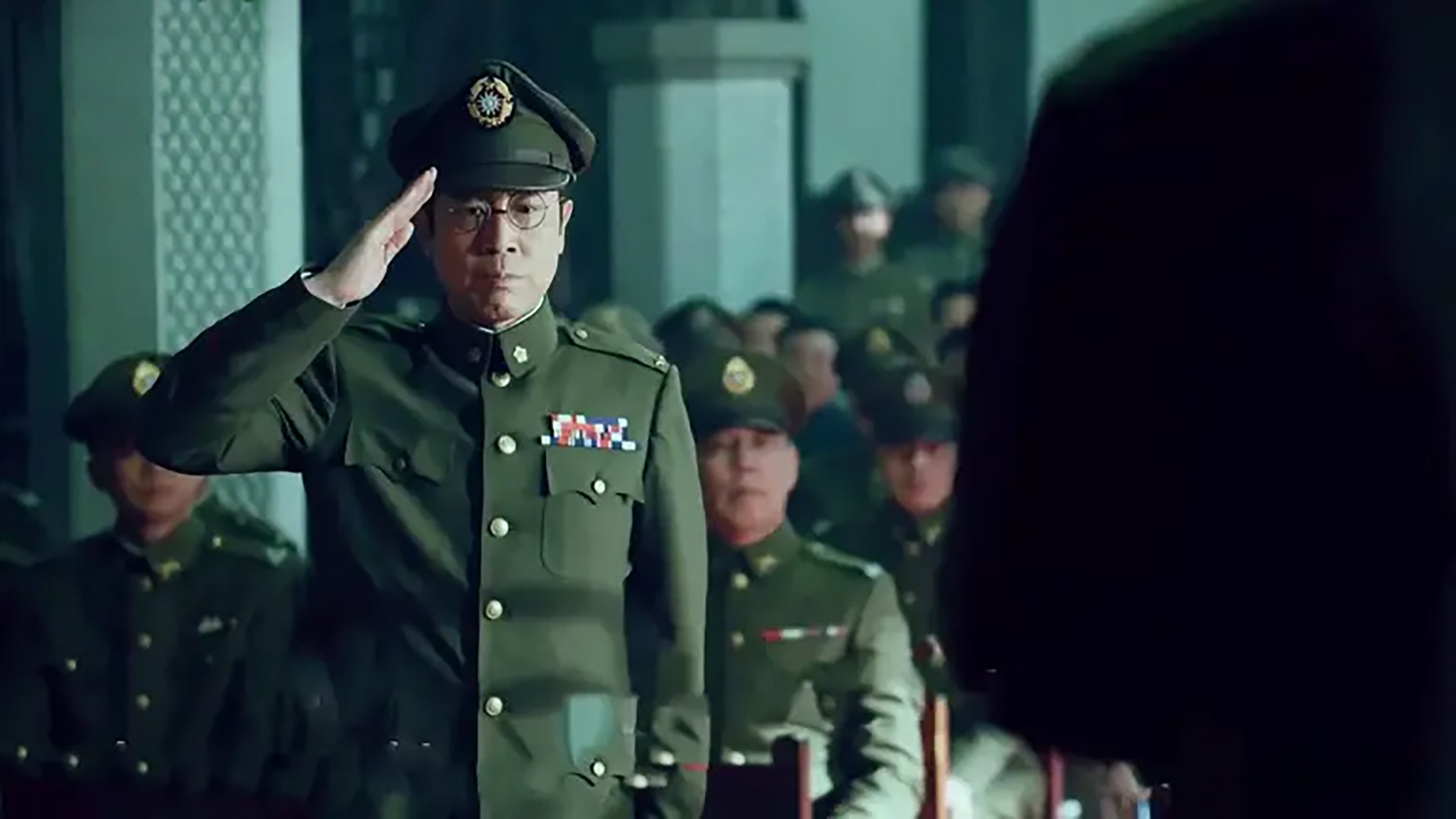
Chinese spy drama Silent Honour inspires praise for real-life agents
The Chinese public has come out in force to pay tribute to Communist Party undercover agents who perished during the 1940s civil war, inspired by a television drama that gained a passionate following and sparked an outpouring of praise. The fervour centres on Silent Honour, the mainland’s first television series to chronicle the Communist Party’s espionage activities in Taiwan in the war’s final months when one of the party’s major intelligence operations was systematically crushed by the Kuomintang, which had fled to the island after losing the civil war. In Beijing, people have laid flowers on the tombs and statues of intelligence agents Chen Baocang, Nie Xi, Wu Shi and Zhu Feng – Silent Honour’s main characters – at the Unknown Heroes Memorial Square in Beijing’s Xi Shan National Forest Park. A park employee told Beijing Daily of “a sudden surge” of visitors to the square in recent days, despite it not being Ching Ming, China’s grave-sweeping festival. Hundreds of flowers were laid on Wu’s tomb. An underground party member, Wu was a KMT lieutenant general delegated to Taiwan in 1949 to serve as deputy chief of staff of the island’s Ministry of National Defence. Beijing resident Harry Wang, 35, visited the square on Thursday and said many people had left thank-you notes to Wu, whom he called an “unsung hero”. “When I got there at noon, there were already hundreds of bouquets of flowers, fruit plates and other offerings laid on the ground in front of the statues, just like it was Ching Ming,” he added. Wang opted not to watch the show’s finale on Thursday night, explaining it would have been “too painful to watch” and that the fate of Wu and his team had already been sealed. Silent Honour is based on real events and uses the names of communist spies who operated in Taiwan at the time, marking a departure from previous mainland television dramas drawing from history and involving secret agents. Wang noted the show was unlike other Chinese spy dramas whose stories culminated in the communist agents winning. “There is no reversal at the end and no miracle in their fate,” he said. “It just gave me a lingering melancholy.” Many Chinese social media users agreed. “I cried my eyes out. I can’t accept the ending that they all died,” said a Weibo user after watching the last of Silent Honour’s 39 episodes. “They did their best, but they were betrayed by their comrades,” the internet user added. “They accepted their fate peacefully. There is a hidden yet profound sadness even in the scenes of happy gatherings.” Another Weibo user called the show’s storyline “probably the most extensive and long overdue recognition of these hidden martyrs”. Silent Honour was ranked among the 10 most discussed topics on Weibo on Thursday night. Visitors have also flooded the Wu family’s residence in Fuzhou, Fujian province, the hometown of Wu and his adjutant Nie, according to Fuzhou Daily. Some brought to Wu’s statue photos of China’s latest weapons displayed during the large-scale military parade in Beijing last month, including the latest DF-5C nuclear intercontinental ballistic missiles and unmanned aerial vehicles, the report added. Hailing the four as “martyrs”, Chen Binhua, a spokesperson of the State Council’s Taiwan Affairs Office, on Wednesday said their “faith and determination will undoubtedly inspire compatriots on both sides of the Taiwan Strait to achieve the great cause of national reunification and the rejuvenation of the Chinese nation at an early date”. Beijing hailed Wu as “Secret Agent No 1”, and former Chinese leader Mao Zedong penned a poem commemorating his death. Silent Honour centres on Wu’s repeated transmissions of crucial military intelligence to the East China Bureau during his time in Taiwan. Beijing sees Taiwan as part of China to be reunited by force if necessary. Most countries, including the US, do not recognise Taiwan as an independent state, but Washington is opposed to any attempt to take the self-ruled island by force and is committed to supplying it with weapons. Amid high tensions across the Taiwan Strait in recent years, Taipei has faced challenges from a growing number of espionage cases exposing vulnerabilities in its counter-intelligence systems. Taiwanese leader William Lai Ching-te, from the pro-independence Democratic Progressive Party, has characterised Beijing as a “hostile foreign force” and proposed 17 national security measures to counter Beijing’s alleged infiltration efforts. At least five people close to senior DPP officials are under investigation or have been detained this year for allegedly leaking classified information to mainland Chinese intelligence. They include aides to Lai and Joseph Wu, secretary general of Taiwan’s National Security Council. According to Taiwan’s National Security Bureau, 159 people have been prosecuted since 2020 for allegedly engaging in espionage for mainland China. Of these, nearly 60 per cent were active or retired military personnel. In 2024 alone, 64 people were prosecuted, a significant increase from 48 the previous year. They included 28 active-duty military officers and 15 retired military personnel.